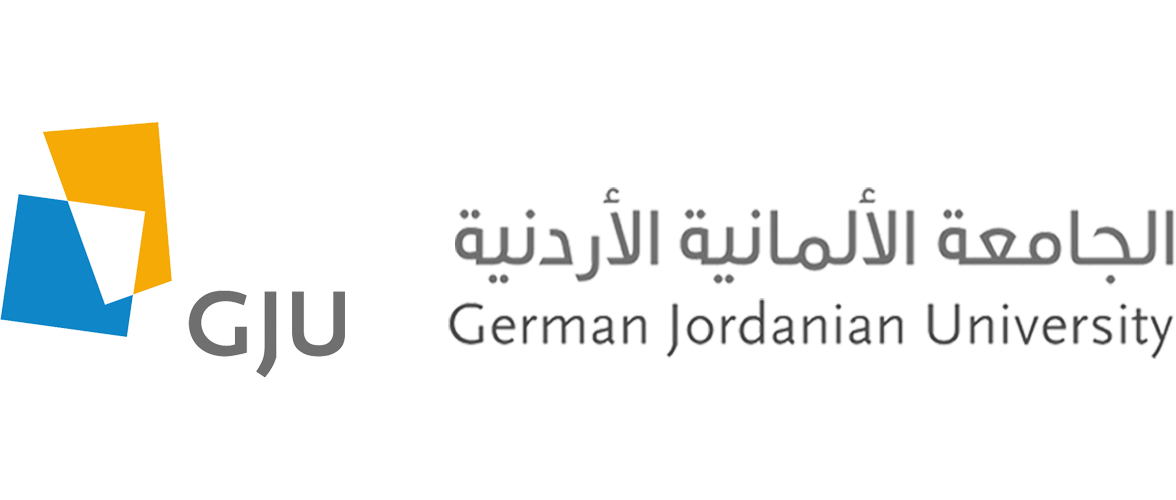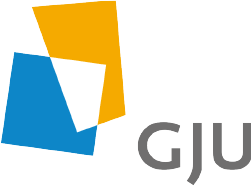Amman- 10 June 2020
The GJU Project Office Magdeburg-Stendal interviewed the Director of the German Language Center (GLC), at the German Jordanian University (GJU), Jacqueline Rogler on online teaching at GLC.
"Interview with Jacqueline Rogler about online language teaching at the GLC"
Jacqueline Rogler is head of the German Language Center (GLC) at the GJU. We spoke to her about the opportunities and challenges of online language teaching at the GLC in times of Corona.
Dear Mrs Rogler,
How is the online language teaching at GLC going at the moment? What percentage of digital teaching can the GLC staff offer to students?
Since the closure of the campus in mid-March due to the shutdown imposed by the government, all of our 130 language courses at the German Language Center have been conducted in online format. We make use of a combination of teaching via video conference and blended learning elements.
Up to this point, web-based teaching at the university had been a recurring theme, but the barriers to its implementation were great. Then came the leap into cold water. Within a very short period of time, the entire course program had to be converted to online teaching - as decreed by the ministry. There were strict instructions which had to be specified accordingly by the universities and their faculties and implemented on time.
A lot of things came together: the reorientation of the teaching activities, the familiarisation with digital learning platforms, the question of how interactive language teaching can be didactically implemented in a meaningful way on the screen, deprivation of liberty due to an absolute curfew, children in home schooling, small children with care needs even during video circuits, unstable Internet connections and the pressure to be able to cope with the whole situation. But the crisis welded together.
An enormous team spirit developed within the almost 60-member college at the Language Centre. Colleagues created tutorials to help even the less technically ambitious keep pace; massage services were used to exchange information almost seamlessly, provide professional support and motivate each other.
"We see the crisis as an opportunity and make possible what is possible under the given conditions," has been our motto since the beginning of online teaching. For more than two months now, we have been covering the entire course operation in online format and keeping the semester running virtually, also thanks to a strong university management and the technical support provided by the IT department of the university.
Can all courses that normally take place in classroom mode also be offered digitally? Which courses / teaching elements are offered?
We currently offer all courses that normally take place in classroom mode digitally. At the GLC, this includes the DaF courses, but also the various technical language courses, job application training and intercultural training.
How does the contact between teachers and students work? Are there fixed digital office hours in addition to the digital courses?
Depending on the personal preferences of the colleagues, we work with different platforms and programs for video conferencing and the implementation of blended learning activities. In addition, the courses are either recorded or documented in another form and made available to the students.
In this way, those who cannot attend classes due to technical failures or who would like to take advantage of the now more flexible learning time are also given access. In addition, each course instructor offers consultations, which - now online - are already known to students from regular attendance classes and which serve to provide individual advice and to intercept any problems that arise in the learning process.
The contact between teacher and students outside of class takes place via several channels, via e-mail and, for a quick and unconventional exchange, via created groups in messenger tools. Colleagues say that they have established more intensive contact with their students since online teaching.
What is the procedure for examinations / homework etc.? What control mechanisms are there?
The execution of examinations is currently still the biggest challenge for us. Oral performance assessments, also as pair examinations, can be held synchronously in the form of video conferences, where examiners and examinees meet virtually in the examination room.
The implementation of written examinations is more problematic with regard to control mechanisms. Learning platforms with the possibility of linear and time-limited processing of examination tasks, the contents of which are additionally randomly generated, minimise the possibility of fraud, but nevertheless do not guarantee absolute security. The semester performance is therefore cumulatively composed of mainly oral performance during the semester and a written final examination.
What are the biggest challenges at the moment? Are there any technical difficulties?
Apart from the hurdles mentioned at the beginning, it is above all the limited or missing direct interaction with the learning group that is of immense importance, especially when learning a language. Synchronous online teaching requires a minimum amount of transmission bandwidth.
Limited frame rates or the loss of non-verbal communication due to the lack of video transmission make interaction considerably more difficult. "When the cameras are off, I have the feeling that I'm talking into nothingness ...", "... without a facial expression I lack the spontaneous feedback of my students ...", say colleagues.
The loss of the social component and the different social forms is also perceived as a considerable disadvantage by many colleagues. Although some learning platforms allow for a differentiated division into learning groups, a language game, carried out together at a table, has a different character than a meeting in a virtual classroom.
It is also difficult in synchronous classroom work to get the learning-weak or less motivated students on board, because these are the ones who hide behind switched-off cameras or withdraw from the classroom completely.
Your personal assessment: What is the advantage of current online teaching? What effects does online teaching have on colleagues at GLC?
One advantage of the current online teaching is that the barrier in dealing with the topic of media-based teaching has been broken. We have learned a lot: technically, didactically, humanely.
The step-by-step development of competences in dealing with the new digital teaching/learning programs and the successful access to a new learning culture have created a new awareness.
The team spirit has been strengthened and can be seen as one of the main stimuli that the challenges have been successfully mastered so far.
Teaching methods in conventional teaching practice were questioned and new ways of digital implementation were tested. We agree that our future teaching work will benefit from the new experiences and that face-to-face teaching will be complemented much more by media-based elements.
What feedback do students give?
On the one hand, there are the learners who welcome the fact that the lesson recordings and the provision of the teaching materials in the virtual classroom allow for multiple repetition in a flexible time frame. "More efficient", "more comfortable", "saving time and money", "easier and location-independent access to education" are attributes mentioned several times with regard to online teaching. Students also consider the course-complementary exchange via the Messenger tools to be advantageous, which makes information available quickly and which promotes communication within the group.
However, there are also those students who find online learning more strenuous, who miss the direct contact of the presence phase and have difficulty in dealing with the more demanding forms of self-regulated learning. "... The lack of face to face communication made language practicing very difficult. ... ", " ... I used to exit on-campus lectures with full understanding and with a complete memory obtained through exercises and visual learning. … “, „ ... E-learning suddenly completely amplified the idea of self-learning and independence which resulted in me taking longer to comprehend and study each lecture. …“
For future teaching and online concepts, more attention must be paid to the question of how the different types of learners can be given greater consideration and how the competences of autonomous self-study can be better promoted for learners from different learning cultures.
What do you think - will Corona continue to promote digitisation at the GLC and should newly tested digital concepts be retained in the future?
The experiences from the crisis will undoubtedly influence our future language teaching. Where media-based elements serve to work in a more differentiated way, to positively influence the motivation of learners, but also to promote autonomous learning outside the classroom, we will make more use of digital arrangements than we have done so far.
Furthermore, there are already strategic considerations to expand our course system with a fully digitalized or online-based language courses.
These should address a target group that needs a programme that is flexible in terms of time and space in order to gain access to learning a foreign language. This will require an even further adapted concept of digital teaching. The fact that we have the necessary human resources for this has been expressly proven by our colleagues at the German Language Center.
Many thanks for the interview.
Check the link below to read the interview in German Language.

